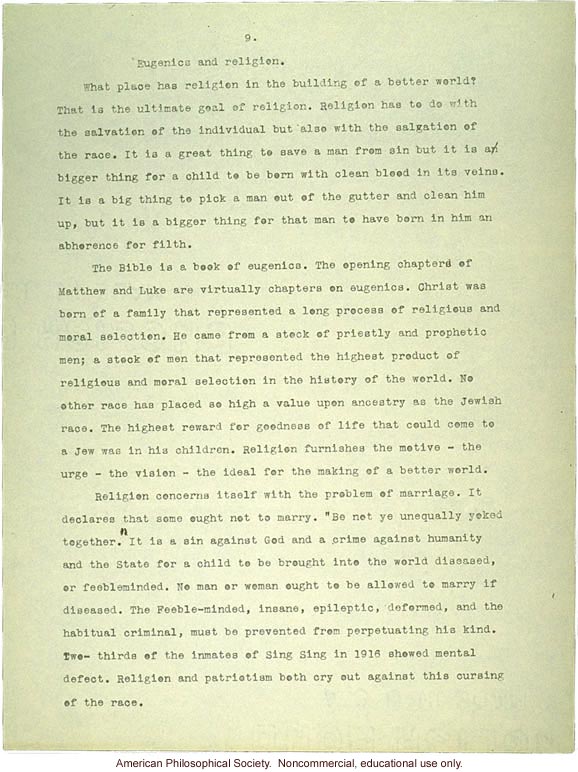Sermon #2: Eugenics, AES Sermon Contest 1926, #2 (8)

Sermon #2: Eugenics, AES Sermon Contest 1926, #2 (8)
776. [page number] 9. [end page number] Eugenics and religion. What place has religion in the building of a better world? This is the ultimate goal of religion. Religion has to do with the salvation of the individual but also with the salvation of the race. It is a great thing to save a man from sin but it is a bigger thing for a child to be born with clean blood in its veins. It is a big thing to pick a man out of the gutter and clean him up, but it is a bigger thing for that man to have born in him an abhorence [sic] for filth. The Bible is a book of eugenics. The opening chapters of Matthew and Luke are virtually chapters on eugenics. Christ was born of a family that represented a long process of religious and moral selection. He came from a stock of priestly and prophetic men; a stock of men that represented the highest product of religious and moral selection in the history of the world. No other race has placed so high a value upon ancestry as the Jewish race. The highest reward for goodness of life that could come to a Jew was in his children. Religion furnishes the motive - the urge - the vision - the ideal for the making of a better world. Religion concerns itself with the problem of marriage. It declares that some ought not to marry. "Be not ye unequally yoked together." It is a sin against God and a crime against humanity and the State for a child to be brought into the world diseased, or feebleminded. No man or woman ought to be allowed to marry if diseased. The Feeble-minded, insane, epileptic, deformed, and the habitual criminal, must be prevented from perpetuating his kind. Two-thirds of the inmates of Sing Sing in 1916 showed mental defect. Religion and patriotism both cry out against this cursing of the race.
- ID: 10758
- Source: DNALC.EA


